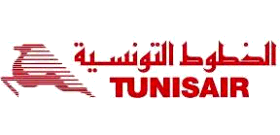 Tunisair Leases A340: Boosting Capacity, Hajj Pilgrimage Focus
Tunisair Leases A340: Boosting Capacity, Hajj Pilgrimage Focus
Tunisair has strategically chartered a 20-year-old Airbus A340-300 from the German ACMI specialist Universal Sky Carrier to bolster its long-haul, high-density routes, especially those serving Montreal and Marseille. This move reflects a broader trend among African carriers utilizing ACMI leasing to adapt to fluctuating travel demands and operational challenges.
The leased A340-300, registered as D-AUSC, offers Tunisair a two-class configuration with 253 seats, including 38 fully flat beds in business class. This added capacity is crucial for Tunisair, which has faced operational disruptions and aircraft availability issues. The airline's own A330 fleet has been hampered by maintenance problems, necessitating the use of wet-leased aircraft to maintain essential services.
Significantly, the chartered A340 also played a key role in facilitating Hajj pilgrimage flights to Jeddah earlier in June 2025. This underscores the growing importance of ACMI leasing in managing peak travel seasons and specialized charter operations. The 2025 Hajj season saw a surge in demand, with over 3,300 dedicated flights operated by 62 airlines from 71 countries. Tunisair's use of the A340 demonstrates the strategic value of flexible capacity solutions for such events.
Tunisair's leasing strategy extends beyond the A340. The airline has also temporarily chartered a Boeing 767 from euroAtlantic Airways and both Boeing 777 and Airbus A330 aircraft from Privilege Style. This diversified approach highlights the airline's commitment to maintaining operational continuity and meeting passenger demand despite its internal fleet challenges. The ACMI market is experiencing significant growth, projected to reach over USD 8.31 billion by 2032, with Africa as a key region for expansion.
The reliance on wet-leased aircraft comes as Tunisair grapples with a range of operational and financial difficulties. The airline has been under scrutiny for maintenance backlogs, leading to prolonged aircraft downtime and flight disruptions. Furthermore, a corruption probe and financial pressures have added to the airline's woes. The government has called for a comprehensive rescue plan to address these issues and restore Tunisair's reputation.
Despite these challenges, Tunisair is actively pursuing network expansion and fleet modernization. The airline is considering acquiring two additional aircraft to launch new long-haul routes to the Americas and Asia. Plans are also underway to introduce a third Airbus A330 in 2025 to strengthen long-haul operations, particularly to Canada. These initiatives, combined with the strategic use of ACMI leasing, demonstrate Tunisair's determination to navigate its current difficulties and maintain its position in the African aviation market.
The case of Tunisair highlights a broader trend in the African aviation landscape. ACMI leasing is becoming increasingly prevalent as airlines seek flexible and cost-effective solutions to manage capacity, address operational disruptions, and capitalize on growth opportunities. The emergence of African-based ACMI providers further strengthens this trend, offering regionally tailored services and fostering local expertise. As the African aviation market continues to evolve, ACMI leasing is likely to play an even more prominent role in shaping airline strategies and ensuring operational resilience.
